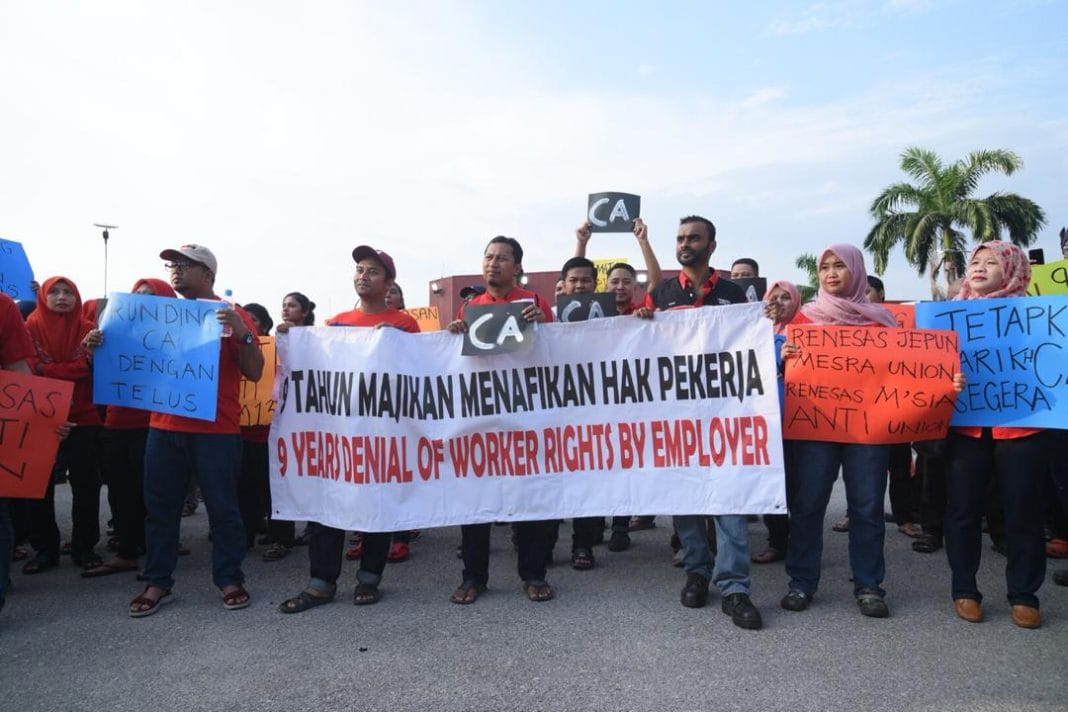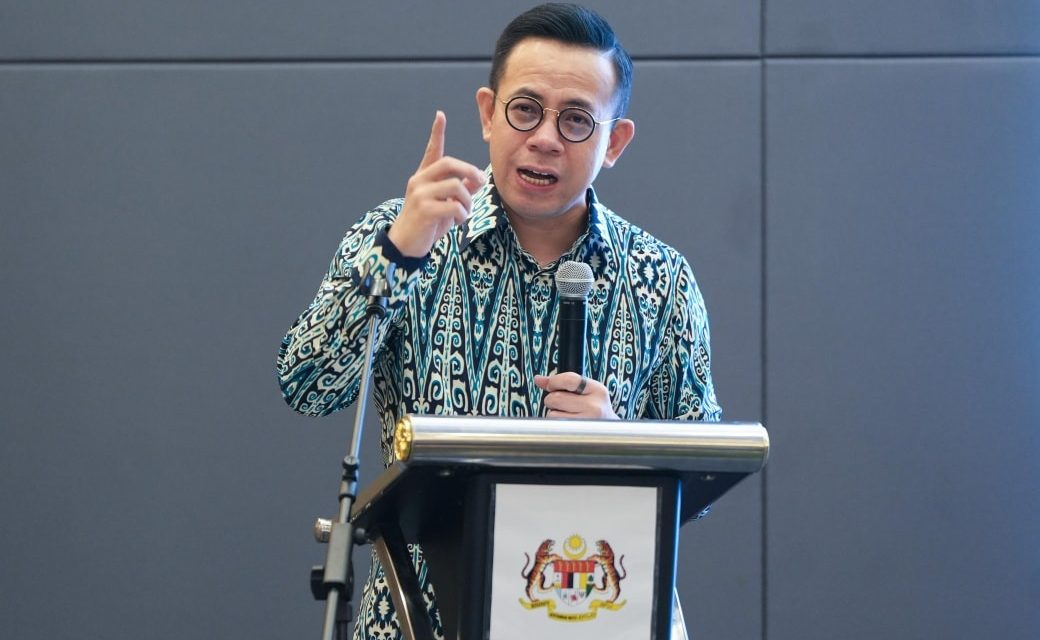
KUALA LUMPUR, Sept 2 — The Ministry of Human Resources (Kesuma) on August 25 tabled the Gig Workers Bill 2025, which it described as a major milestone in the bid to regulate gig work and protect millions of workers.
The Bill, which was passed on August 28, came after years of protests over what workers alleged to be exploitative practices by internet-based companies, fuelling demand for safeguards in a multi-billion-ringgit industry that largely operates outside laws governing formal employment.
About 1.2 million Malaysians currently earn through gig work, with e-hailing emerging as the most prominent sector, according to Kesuma data.
What is the Gig Workers Bill 2025?
The ministry said the Gig Workers Bill 2025 provides a clear legal framework to protect the rights and welfare of gig economy workers, starting with a clearer and broader definition of what constitutes gig work and which types of workers are protected under this law.
Who qualifies as a gig worker under the new law?
Any individual who:
1. Has entered into a service agreement with an entity or platform provider
2. Performs services for a platform provider or earns income through the following activities:
- Acting or singing
- Film production crew work
- Lyric writing or music composition
- Make-up artistry
- Hairdressing or styling
- Freelance journalism
- Care services
- Videography
- Photography
Why is the Bill important?
This Bill is considered a significant step because it seeks to address several key issues faced by gig workers.
This includes the lack of legal recognition — gig workers do not have a clear legal definition, making it difficult to seek legal recourse in disputes — as well as the absence of social protection.
The new law makes social security contributions — such as those to Perkeso and EPF — mandatory for service providers, giving gig workers a safety net they previously lacked.
The law also establishes a formal dispute resolution mechanism, including a Gig Workers Tribunal, to handle complaints in a structured and transparent way.
When can gig workers escalate complaints for mediation?
Under the Bill, gig workers may seek mediation in cases involving:
1. Issues with individuals or sole proprietors who engage them
- Decisions by a platform provider that affect them, such as:
- Deactivation of their access
2. Alleged misconduct
3. Absence of an internal grievance mechanism by the contracting entity
4. Dissatisfaction with the outcome of an internal grievance process, if one exists
The Bill also addresses income protection by seeking to regulate payment terms that would require companies to clearly define how they will remunerate those they hire.
The Bill would also prohibit arbitrary deductions.
What are the weaknesses of the Bill?
The Human Rights Commission of Malaysia (Suhakam), for one, said the Bill is still missing provisions for wage guarantees, timelines for payment and transparency in deductions.
The law prohibits arbitrary deductions, but allows exceptions for overpayments and other legally authorised cases — a provision critics say lacks clarity and may be open to misuse.
Suhakam had also raised concerns about privacy and data protection — the Bill does not explicitly protect a gig worker’s right to privacy and does not prevent the misuse of personal data in rating or scoring systems by platform providers.
It also argued that legal aid and collective bargaining rights are indispensable for ensuring fairness in the gig economy.
Various groups, including e-hailing and p-hailing workers, have called for the Bill to be reviewed by a Parliamentary Select Committee and not rushed through Parliament.

Zahiid, S. J. (2025, September 2). From wage regulation to dispute resolution: How the Gig Workers Bill offers safeguards for 1.2 million Malaysians. Malay Mail. https://www.malaymail.com/news/malaysia/2025/09/02/from-wage-regulation-to-dispute-resolution-how-the-gig-workers-bill-offers-safeguards-for-12-million-malaysians/189234
- PERKESO reforms ensure comprehensive protection for all workers, says HR Minister
 KUALA LUMPUR: The Human Resources Ministry, through the Social Security Organisation (PERKESO), continues to undertake comprehensive reforms to strengthen social protection for all contributors, including gig workers and foreign workers, says Steven Sim Chee Keong. The Human Resources Minister said that 10 major reforms have been implemented over the past two years to provide more […]
KUALA LUMPUR: The Human Resources Ministry, through the Social Security Organisation (PERKESO), continues to undertake comprehensive reforms to strengthen social protection for all contributors, including gig workers and foreign workers, says Steven Sim Chee Keong. The Human Resources Minister said that 10 major reforms have been implemented over the past two years to provide more […] - KESUMA’s drive for fair work and shared progress
 The LIFE AT WORK Awards (LAWA) hosted by Talent Corporation Malaysia Bhd (TalentCorp), celebrates its 10th edition, solidifying its influence as a platform that drives transformation in diversity, equity and inclusion (DEI) in Malaysian workspaces. With concerns regarding human capital rising amid the ubiquity of artificial intelligence (AI), it is crucial now more than ever […]
The LIFE AT WORK Awards (LAWA) hosted by Talent Corporation Malaysia Bhd (TalentCorp), celebrates its 10th edition, solidifying its influence as a platform that drives transformation in diversity, equity and inclusion (DEI) in Malaysian workspaces. With concerns regarding human capital rising amid the ubiquity of artificial intelligence (AI), it is crucial now more than ever […] - ‘Many employers not making mandatory Perkeso, EPF contributions’
 KLANG: The Human Resources Ministry has detected a worrying number of employers still refusing to register or make mandatory contributions to the Social Security Organisation (Perkeso) and Employees Provident Fund (EPF) for their workers. The ministry stressed that such actions violated employees’ rights and denied them basic protection. Deputy Human Resources Minister Datuk Seri Abdul […]
KLANG: The Human Resources Ministry has detected a worrying number of employers still refusing to register or make mandatory contributions to the Social Security Organisation (Perkeso) and Employees Provident Fund (EPF) for their workers. The ministry stressed that such actions violated employees’ rights and denied them basic protection. Deputy Human Resources Minister Datuk Seri Abdul […] - Nearly 500 labour law breach cases detected
 KLANG: Almost 500 investigation papers have been opened against employers for breaches of labour laws as of Nov 1, says Deputy Human Resources Minister Datuk Seri Abdul Rahman Mohamad. Among the most common labour law offences are employers’ failure to make the mandatory contributions to the Social Security Organisation (PERKESO) or the Employees Provident Fund […]
KLANG: Almost 500 investigation papers have been opened against employers for breaches of labour laws as of Nov 1, says Deputy Human Resources Minister Datuk Seri Abdul Rahman Mohamad. Among the most common labour law offences are employers’ failure to make the mandatory contributions to the Social Security Organisation (PERKESO) or the Employees Provident Fund […] - MOHR Won’t Tolerate Companies Preventing Workers From Forming Union
 The Industrial Relations Department of the Human Resources Ministry (MOHR) has reaffirmed its commitment to safeguarding workers’ rights after a gathering and memorandum submission by several labour unions concerning alleged union-busting practices. The department emphasised that it respects the constitutional right to peaceful assembly and freedom of speech, while reiterating that workers’ rights to form […]
The Industrial Relations Department of the Human Resources Ministry (MOHR) has reaffirmed its commitment to safeguarding workers’ rights after a gathering and memorandum submission by several labour unions concerning alleged union-busting practices. The department emphasised that it respects the constitutional right to peaceful assembly and freedom of speech, while reiterating that workers’ rights to form […] - Court Orders Employer To Pay 93 Migrant Workers Outstanding Wages
 Human Resources Minister Steven Sim Chee Keong has welcomed the Shah Alam High Court’s decision to uphold an earlier ruling by the Labour Court, ordering an employer to pay outstanding wages to 93 migrant workers who were left without work upon arrival in Malaysia. The High Court on 31 October 2025 affirmed the Labour Court’s […]
Human Resources Minister Steven Sim Chee Keong has welcomed the Shah Alam High Court’s decision to uphold an earlier ruling by the Labour Court, ordering an employer to pay outstanding wages to 93 migrant workers who were left without work upon arrival in Malaysia. The High Court on 31 October 2025 affirmed the Labour Court’s […] - No tolerance for employers who withhold wages, says HR Minister
 The Ministry of Human Resources (KESUMA) has urged all employers to take heed of the recent Shah Alam High Court ruling which upheld a decision in favour of 93 migrant workers in an unpaid wage case. Human Resources Minister Steven Sim Chee Keong said the Oct 31 decision sends a strong message that failure to […]
The Ministry of Human Resources (KESUMA) has urged all employers to take heed of the recent Shah Alam High Court ruling which upheld a decision in favour of 93 migrant workers in an unpaid wage case. Human Resources Minister Steven Sim Chee Keong said the Oct 31 decision sends a strong message that failure to […] - THE HEART WORK REVOLUTION
 TEN years after its inception, the Life at Work Awards (LAWA) 2025 marked not just a milestone but a movement that celebrates how Malaysia’s workplaces are evolving with compassion, flexibility and purpose. Hosted by Talent Corporation Malaysia Bhd (TalentCorp), the gala night honoured organisations leading the way in shaping a fairer, more progressive, human-centred world […]
TEN years after its inception, the Life at Work Awards (LAWA) 2025 marked not just a milestone but a movement that celebrates how Malaysia’s workplaces are evolving with compassion, flexibility and purpose. Hosted by Talent Corporation Malaysia Bhd (TalentCorp), the gala night honoured organisations leading the way in shaping a fairer, more progressive, human-centred world […] - Group wants clear framework, pilot projects before expanding EIS to gig workers
 PETALING JAYA: The Malaysian Industrial, Commercial and Service Employers Association (Micsea) has called on the government to set a clear policy framework and run pilot projects before expanding the Employment Insurance System (EIS) to gig and platform-based workers. The association said the plan, announced by human resources minister Steven Sim in the Dewan Rakyat on […]
PETALING JAYA: The Malaysian Industrial, Commercial and Service Employers Association (Micsea) has called on the government to set a clear policy framework and run pilot projects before expanding the Employment Insurance System (EIS) to gig and platform-based workers. The association said the plan, announced by human resources minister Steven Sim in the Dewan Rakyat on […] - Employer group seeks clarity on foreign worker pay rules after court ruling
 KUALA LUMPUR (Nov 3): The Malaysian Industrial Commercial & Service Employers Association (MICSEA) is calling on the Ministry of Human Resources (MOHR) to issue clear and structured guidelines on wage payment timelines for foreign workers, following a recent court ruling that employers must pay wages from the moment these workers arrive in Malaysia. The call […]
KUALA LUMPUR (Nov 3): The Malaysian Industrial Commercial & Service Employers Association (MICSEA) is calling on the Ministry of Human Resources (MOHR) to issue clear and structured guidelines on wage payment timelines for foreign workers, following a recent court ruling that employers must pay wages from the moment these workers arrive in Malaysia. The call […]
